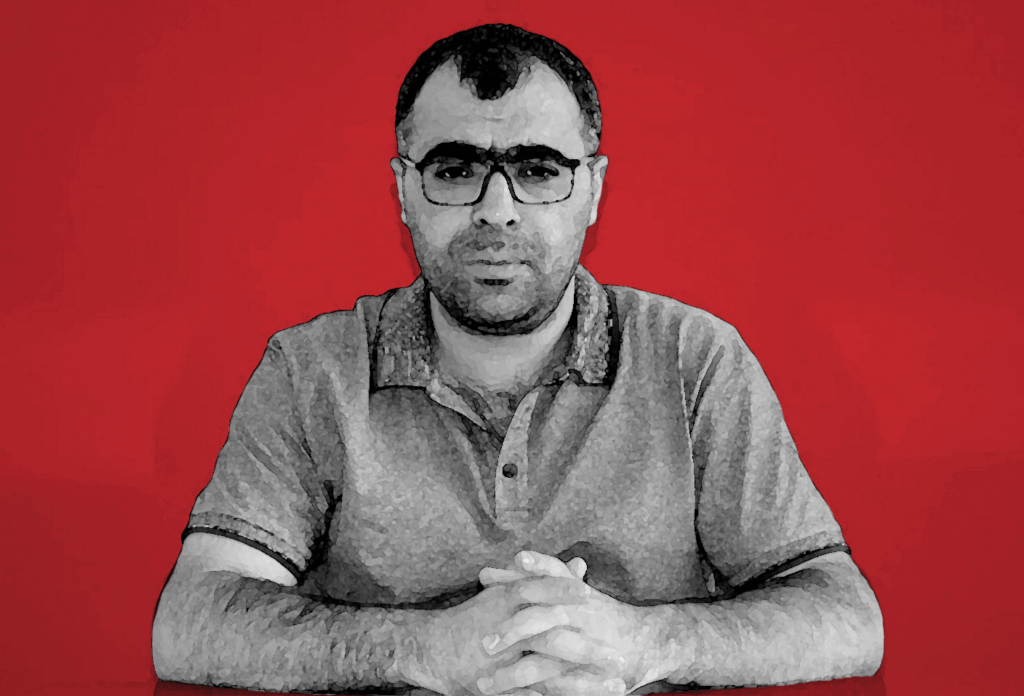Türkiye has outlawed “disinformation.” Meet the first journalist to be arrested

Source Photo: courtesy Sinan Aygül
A new law approved by Türkiye’s ruling Justice and Development party (known as AKP) last October means journalists can now be imprisoned for up to three years for the crime of spreading “disinformation.” The Review of Journalism spoke to the first journalist to be detained under the legislation.
Last December, Sinan Aygül, a journalist based in Bitlis, Türkiye, and the president of the Bitlis Journalists Association, tweeted about a 14-year-old girl who had been sexually assaulted. The suspects were a police officer and a soldier. One hour later, Aygül received a phone call from his local governor saying that his tweet contained disinformation because the police officer and the sergeant involved in the case were eyewitnesses, not suspects. Within 30 minutes, Aygül tweeted again, saying the local governor had told him the story was false. But it was too late: the police had raided his house, seized his electronic devices—his phone, hard drives, and computers—and taken him into custody. He was later found guilty and imprisoned for 10 days.
Aygül: This law will affect journalists very badly in the country. Journalists will go to jail for three years for merely taking false information and sharing it; even [some] criminals don’t go to jail for three years. Basically, this law made it easier to mute all opposition voices very easily.
Furthermore, there is no definition of disinformation. The government will use the disinformation law against those who report on election periods or during periods of serious economic crisis. As soon as these are restricted, all of your information channels are closed and you can’t get information—and when you can’t get information, nobody takes action.
For example, when the internet in Iran was cut off due to protests last fall, Elon Musk activated his Starlink satellite broadband service to help connect Iranians to the world. Now [moving forward] this could be the only way to rescue people—through an internet network outside of government control. But at what cost? Musk also has a good relationship with [Turkish President] Recep Tayip Erdogan, which means that Erdogan will be able to use the disinformation law when he doesn’t want news broadcast—and succeed.
The impact [of being imprisoned multiple times] naturally prevents me from doing my job. The family is inevitably negatively affected. But my wife is not new to all this. When we decided to get married, I was in prison. I would write news from the inside, on small pieces of paper, about rights violations in prisons, the situation of sick prisoners, and I’d profile stories of people in jail. Then, I’d give it to my wife on sight and she would redact and post it on [now-defunct Kurdish outlet] Dicle News Agency.
Constantly going to the courthouse and to the police station is troublesome, and the last arrest showed how recklessly this can be done, as it was a midnight raid and I have two children. One is four and the other is seven years old. During my last arrest, my wife did not tell the children that I was arrested, and the kids thought I was elsewhere for work. But this time, when the caption on television read, “Sinan Aygül was arrested again,” my older child saw it because he can read and write now. When I called the house from jail, he said, “Daddy, you’re under arrest again.”
It’s a tragedy. We take every precaution to ensure that it does not adversely affect the development of children, but it is still a difficult process.
This profession may be challenging, but it is one of the most beautiful professions in the world. Sometimes you hit rock bottom, and sometimes you feel depressed. But we should not lose our motivation. We have to resist.
Update: In March 2023, a Turkish government body said it fined Musk for not securing permission from Turkey’s Competition Board when he bought Twitter last year.
This interview has been edited and condensed for clarity.
About the author
Helin Turk is a fourth-year journalism student at Toronto Metropolitan University. She is from Türkiye and is interested in learning languages and international and investigative stories. She speaks Turkish, English, and Spanish. She loves traveling, outdoor activities, and dancing. She interned at Gazete Oksijen, Istanbul, and Maclean’s “They Were Loved” obituary project.


